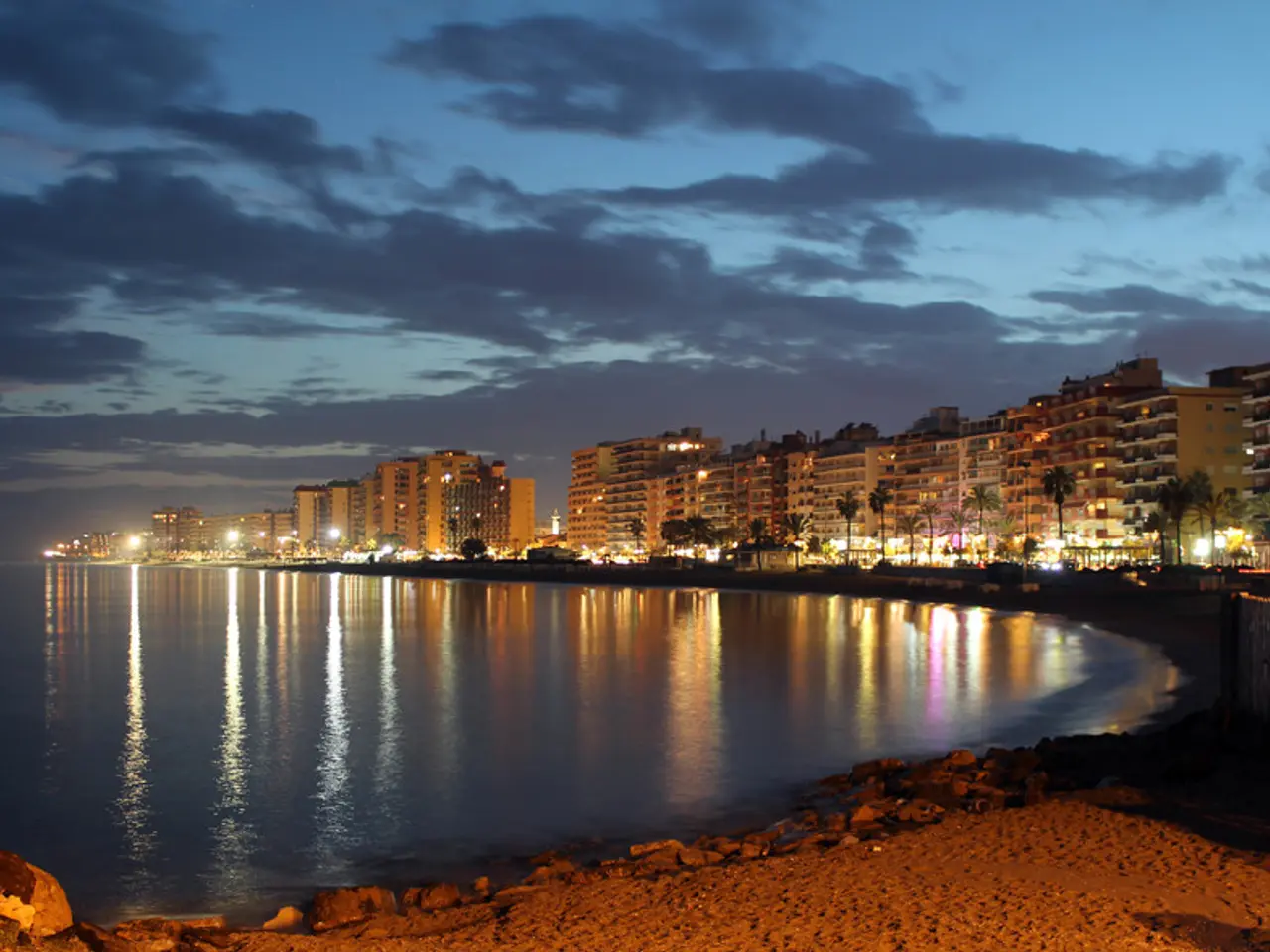Italo-pop music regaining popularity: Schlager genre sees resurgence in Italy - Italian Schlager music is experiencing a surge in popularity
Italo-Schlager Music: A Crossover Genre Echoing Through the Decades
In the realm of music, some genres transcend borders and languages, weaving together the melodies and rhythms of different cultures. One such genre is Italo-Schlager, a captivating blend of Italian melodic pop and the German Schlager style.
Originated from post-war European popular music traditions, Italo-Schlager emerged by merging the catchy, sentimental melodies of Italian pop with the accessible, easily sing-along qualities of German Schlager music. The genre's roots can be traced back to the Sanremo Festival of the 1960s and 70s, though detailed historical records on the specific fusion with Italian elements are scarce.
Italo-Schlager gained popularity towards the end of the 70s, with synthesizers and cheaper productions making music more accessible. The name "Italo Disco" was coined by German label boss Bernhard Mikulski in the late 70s. A notable example of this genre is the international hit "Boys, Boys, Boys" by Sabrina Salerno, which exemplifies the playful silliness of Italo-Disco.
For German ears, Italo-Schlager has always been a promise of sun, sea, and vacation. Under the hashtag #italovibes, countless clips appear on social media, painting Italy as a flawless backdrop. This cross-pollination was part of broader musical trends such as the rise of international music charts in Germany starting in 1958, which tracked singles and brought exposure to such blended genres.
The cultural significance of Italo-Schlager music lies in its role as a unifying form of entertainment across Germanic and Italian-speaking audiences that bridged linguistic and cultural divides through its accessible sound. Hits like Adriano Celentano's "Azzurro" and Umberto Tozzi's "Ti Amo" were popular half of Europe sang along to.
In recent years, there has been a resurgence of interest driven by nostalgia and renewed appreciation in Europe for 1980s pop culture and retro electronic music, including renewed attention on influential figures like Christian Bruhn (a key Schlager composer). Festivals, reissues, and modern reinterpretations have helped revive Italo-Schlager’s appeal, blending vintage sounds with modern production.
Today, bands like Roy Bianco & Die Abbrunzati Boys and Crucchi Gang are popular, with streaming numbers in the millions. Even contemporary artists like Estonian Tommy Cash, who scored a viral hit with a song about pasta and mafia at the Eurovision Song Contest 2025, have been influenced by this genre.
Eric Pfeil, a Cologne journalist, suggests that the current Italo-hype is a regression into a safe world for a young indie generation. He criticizes the German perception of Italy as a 'musical tourist menu', limited to certain clichés and postcard motifs. However, he also believes that this music offers an "innocent territory" where one can imagine a Lake Garda-like Italian world.
Pfeil's observations resonate with the idea that nostalgia is not just a return to the past, but also a critique of the present, as historian Tobias Becker once stated. The future could bring a new form of longing for Italy beyond postcard motifs, according to Pfeil.
In conclusion, Italo-Schlager music, with its upbeat, danceable melodies layered with electronic elements, continues to captivate audiences across Europe. Its enduring cultural significance is evident in its continued presence in European nostalgia markets and crossover music scenes.
In the realms of both entertainment and music, the genre of Italo-Schlager mirrors the ethos of pop-culture, transcending language barriers and bridging cultures. This genre, a fusion of Italian pop and German Schlager, has provided vocational training grounds for numerous musicians, as seen in the case of bands like Roy Bianco & Die Abbrunzati Boys and Crucchi Gang, whose streaming numbers reach millions. On the other hand, the community has shown an ongoing interest in vocational training related to this music, with contemporary artists like Tommy Cash drawing influence from the Italo-Schlager style, even in unexpected contexts such as the Eurovision Song Contest.








